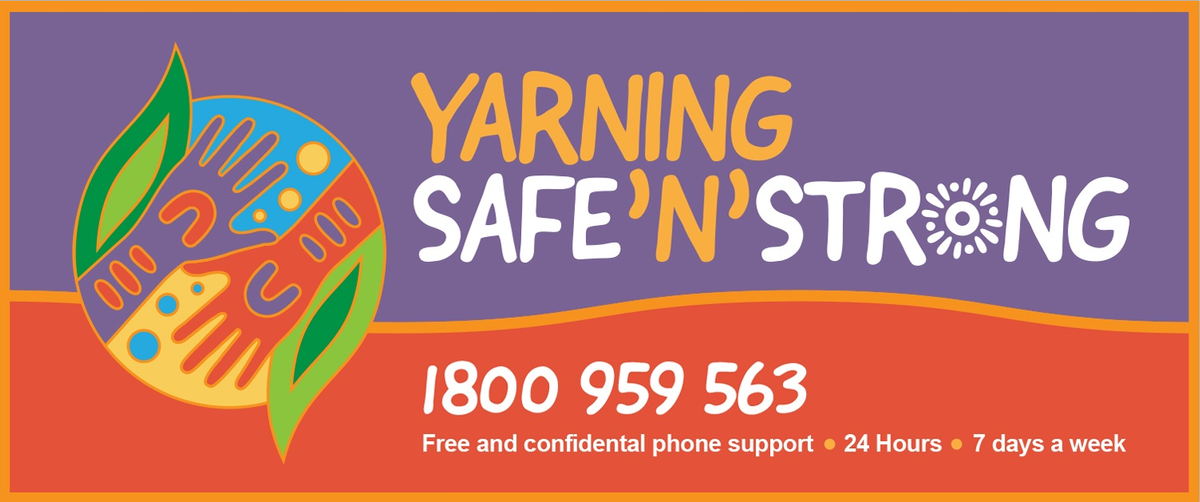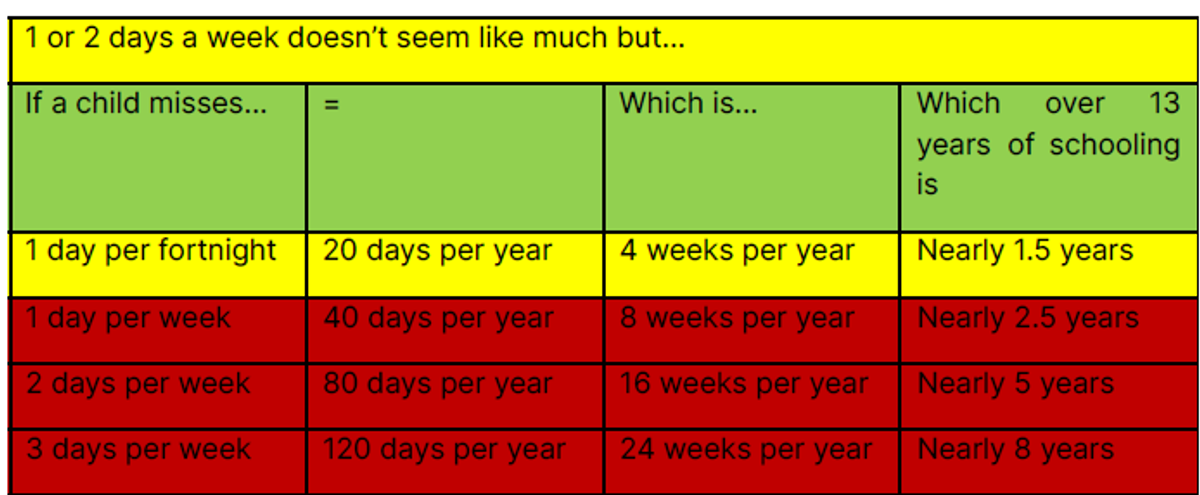Principal's Report

Dear families, students and community members,
Term two is well underway, and I wanted to take this opportunity to share with you all some progress we are making towards one of our major school key improvement strategies.
As a secondary school, we have an important responsibility to prepare our students for what they will face as adults when they head out into the world, no matter where they choose to live.
Our society is increasingly diverse, and it is critically important for every individual’s happiness and wellbeing that our young people know how to live and work harmoniously with others from all walks of life.
To this end, one of our key improvement strategies at Maffra Secondary College is: “to embed a culture of respect and equality”.
The reasoning behind this is twofold. Firstly, by teaching students how to respect themselves, each other, and the people around them, we create a positive community conducive to learning, in which every individual is accepted, inspired and empowered to succeed. Secondly, we know that the teenage years are a key transition period in a person’s life. The mental health of young people can influence how likely they are to achieve better educational outcomes, make a successful transition into full-time work, develop healthy adult lifestyles, and experience fewer challenges forming families and parenting.
Within our school, we respect and value every individual student for who they are and what they bring to our community. We celebrate students for their individuality, and we are an inclusive school that welcomes every student. We have students from First Nations backgrounds, students who come to us from different countries and cultures, students whose families have been in Australia (and Gippsland) for generations, students who identify with the LGBTIQA+ community, students who have chronic illness or a disability, students who have mental health challenges, students with nuclear families, students who don’t live with their parents, students from families that struggle with money and those who don’t, and everything in between. Every person is unique, and everyone has their own story.
As a teenager I clearly remember the rhyme “sticks and stones may break my bones, but words shall never hurt me.” The rhyme was used as a defence against name-calling and verbal bullying, intended to increase resilience, avoid physical retaliation, and/or to remain calm and indifferent. We are very aware these days that words do hurt, and we are aware of the impact ongoing bullying, harassment or racism can have on people. Therefore, it is everyone’s responsibility to change this and to be conscious of how we interact with each other, from the words that are used to the volume and the tone used to deliver the words.
Through our learning to learn program we cover the Respectful Relationships curriculum, which includes teaching students how to celebrate and value diversity. This program helps to teach empathy and understanding of others’ perspectives, helping students to learn that there are a huge range of people on our planet and in our local communities, and that we must treat all people with respect. This is supported by our value of Respect and the 3 expected behaviours that underpin it. We believe that if all members of our community can enact these 3 behaviours, we will make a significant positive impact on the health and wellbeing of all members in our school community:
- Use respectful language, volume and tone
- Support and encourage others
- Be kind, thoughtful and inclusive of everyone
We ask parents and carers of our young people to support this learning by having conversations at home about respect and equality. What does respect mean in your home, your workplace, your community? Role model these three behaviours in the home when you are communicating with loved ones, teach your child/ren how to navigate conflict and disagreements while still being respectful. Helping your child/ren understand how you move through your own daily life as a parent/carer, with empathy and kindness for others, can support them to develop their understanding of other people, and empathise with the fact that every single person has their own challenges to face, regardless of their personal qualities, skin colour, sexuality, socioeconomic status, religion or ethnicity.
Our school is a fantastic place to be, and we hope these conversations will continue to build on the culture of respect and equality already demonstrated by so many people in our school community. We all benefit by having younger generations who can understand the value of respect and equality.
If you or anyone you know is struggling with mental health, the following services are available:
Lifeline: 5144 7113
Headspace phone counselling:1800 650 890
Yarning Safe ‘N’ Strong – 1800 959563
Q space counseling:1800 542 847
Kids helpline: 1800 55 1800
Uniform reminders
As we embark on the cooler months ahead, it is a timely reminder about our school uniform and attendance at school.
Our school council is responsible for the school uniform and as the Principal, it is my responsibility to enforce the correct wearing of the uniform.
Students have a significant amount of leeway with their uniform. We do not restrict what uniform can be worn at specific times of the year and instead our students can wear the summer, winter or the sports uniform at any time. There are a range of different jumpers and jackets that can be worn for warmth, including a woollen jumper, polar fleece jumper, PE jacket and soft shell jacket. To place an order please see uniform order form on the Uniform page. We recommend as the weather begins to cool down, for students to layer up and wear multiple layers of school uniform if they feel the cold. This may include a singlet, navy blue or white long sleeve t-shirt under the respective blue or white school t-shirt, a jumper and a jacket. The top layer of uniform must be our school uniform.
Hoodies, leggings and puffer jackets (or any other form of jacket) are not part of the uniform and we ask parents/carers to support us with these items of clothing staying at home each day. If a student is found wearing a hoodie, they will be asked to remove it and provided with a school jumper for the day. If a student arrives at school in leggings, they will be provided with shorts/tracksuit pants to place over the top of them and students will be asked to remove their jackets and offered an alternative item of school uniform to keep them warm. Repeated reminders given to students wearing these items may result in the non-uniform item being confiscated and a parent/carer collecting it at a suitable time.
It is expected that students are not wearing a jumper under their t-shirt and instead, the top layer of clothing is their uniform - non-uniform items are not to be seen. If you are having difficulty in purchasing uniform for your child, please contact the front office on 5147 1790.
Attendance and Punctuality
Attendance and punctuality at school is important. Students develop good habits by going to school and being on time every day – habits that are necessary to succeed beyond school, whether in the workplace or in further study. As well as academic development, attending school every day helps your child develop crucial social and emotional skills such as good communication, resilience and the ability to work in teams.
There is no safe number of days for missing school – each day a student misses puts them behind, affecting their educational outcomes. Research confirms there is a strong link between poor attendance and adverse student outcomes like early school leaving, poverty, drug and alcohol use, unemployment, criminal activity and poorer health and life expectancy. For some parents/carers, 90% attendance may seem like an acceptable level of attendance, but the table below shows what this equates to over your child’s schooling.
90% attendance averages 1 day absent per fortnight, 80% attendance is 1 day absent per week, 60% attendance is 2 days absent per week and 3 days absent per week is 40% attendance. Have you checked your child’s attendance lately?
STUDENT ABSENCES (AWAY FOR THE ENTIRE SCHOOL DAY)
Regular school attendance is vital to maintain a high level of student achievement and
engagement, support the development of positive relationships and develop
independence and responsibility.
Punctuality is important from the onset of school to set good standards for their future
lives. If your child is regularly late to school or when at school, is late to class throughout the day, this not only adds up to many days of lost learning but interrupts the teacher and the whole class of learners who are ready to learn, as they enter the room late and need help to get started.
If you want your child to be successful at school, attendance and reminding them of the importance of being to class on time is a great beginning. Using the toilet before school, recess and lunchtime are also little changes that can be made for some students to ensure they are making full advantage of their educational opportunities.
Funding for F-Wing Toilet refurbishment
I am very pleased to let the community know that we received funding for the refurbishment of the F-Wing toilets at the beginning of the term. Over the past 5 years we have spent a significant amount on maintaining these toilets but have faced continued challenges at times with student behaviour in this area. It has come as a great relief to have received just under $800,000 to refurbish them. The process is expected to be completed by 2026 but we hope this may be achievable by the end of 2025. This will complement the current redevelopment of the upper quadrangle which is currently in the design phase, and we hope to start work on this prior the end of the year.
Ms Jennifer Roep
Principal




